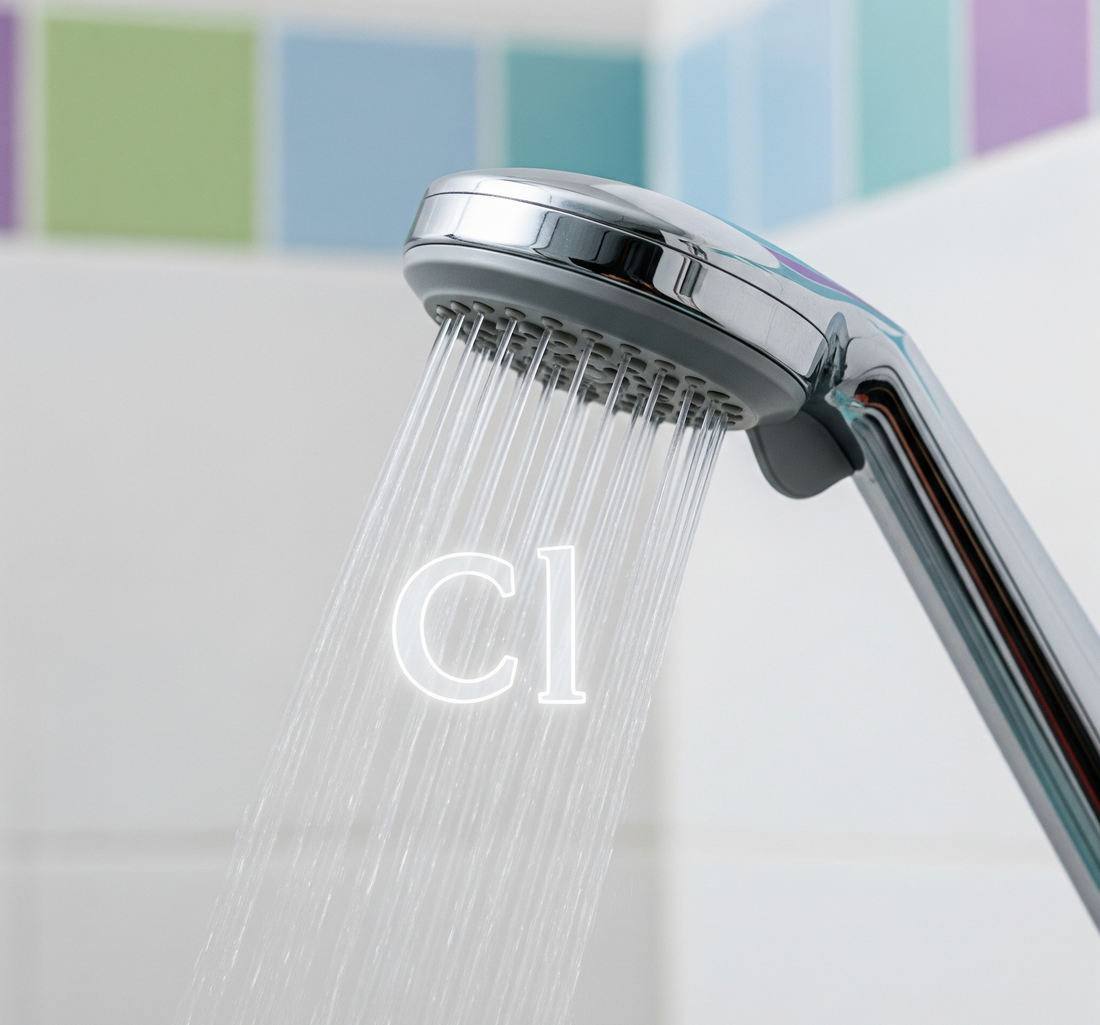
The Chlorine Question: Why It’s in Your Water and Why It Needs to Go
Share
When you turn on your shower, you're likely not thinking about the chemical composition of the water cascading over your skin and hair. Yet, chlorine—a powerful disinfectant—is lurking in those droplets, potentially wreaking havoc on your body's largest organ and your crowning glory. While chlorine plays a vital role in public health by eliminating harmful bacteria from municipal water supplies, its benefits in the pipeline don't necessarily translate to benefits in your bathroom.
How Chlorine Became a Water Treatment Standard
Chlorination revolutionized public health in the early 1900s, virtually eradicating waterborne diseases like typhoid and cholera that once decimated populations. This disinfection method remains the predominant approach in water treatment facilities across America, valued for its efficacy and cost-effectiveness. Water utilities introduce chlorine or chloramine (a more stable chlorine compound) to eliminate pathogenic microorganisms before water travels through miles of infrastructure to reach your home.
The Science Behind Chlorine's Effects on Skin and Hair
Despite its public health benefits, chlorine's chemical properties make it problematically harsh for daily personal use. Understanding the mechanisms of how chlorine interacts with your body illuminates why many experience beauty and wellness issues despite using premium products.
Stripping Natural Oils and Disrupting Your Skin Barrier
Chlorine is fundamentally a powerful oxidant, meaning it aggressively breaks down organic matter—including the natural oils (sebum) that protect your skin and hair. This sebaceous layer serves as your body's intrinsic moisturizing system and antimicrobial shield. When chlorine depletes these protective lipids, your skin's moisture barrier becomes compromised, leading to:
- Transepidermal water loss (accelerated moisture evaporation)
- Heightened sensitivity and reactivity
- Increased vulnerability to environmental irritants
- Potential microbiome imbalances that can trigger acne and inflammation
The epidermis, already contending with environmental stressors, faces additional oxidative stress from daily chlorine exposure, potentially accelerating visible aging processes.
Beyond Dryness: Chlorine's Hidden Impact on Hair Health
Hair, composed primarily of keratin protein, is particularly susceptible to chlorine's oxidative effects. Unlike skin, hair cannot regenerate oils once they're stripped away, making damage cumulative and often irreversible without cutting.
"Many clients spend hundreds on salon treatments and premium hair care products, yet continue struggling with frizz, brittleness, and color fading because they're overlooking the primary culprit—their shower water." - Adriana Rossi, Master Colorist & Salon Educator
The Color-Fading Phenomenon
For those who invest in hair coloring, chlorine presents a particular adversary. Its oxidizing properties literally break down artificial color molecules, causing premature fading and unwanted brassiness or greenish tints, especially in blonde or lighter shades. This chemical interaction explains why even expensive color-preserving shampoos often fail to deliver lasting results when chlorinated water remains part of your daily regimen.
The Solution: Filtering Out the Problem
Addressing chlorine exposure at its primary source—your shower—represents the most efficacious approach to protecting your skin and hair. Advanced filtering technologies can now remove upwards of 98% of chlorine and chloramine before water touches your body, effectively eliminating the root cause rather than merely treating symptoms.
The investment in proper filtration often yields noticeable improvements in skin clarity, moisture retention, and hair manageability within weeks of installation.
Summary
By addressing the chlorine question at its source, you're not just enhancing your aesthetic concerns—you're making a fundamental wellness choice that supports your body's natural functions and reduces unnecessary chemical exposure in your daily routine.
